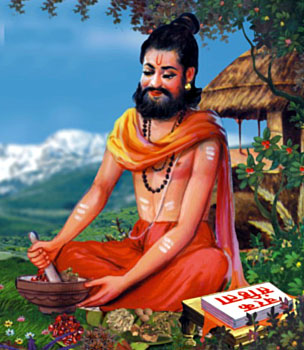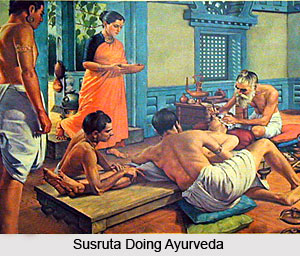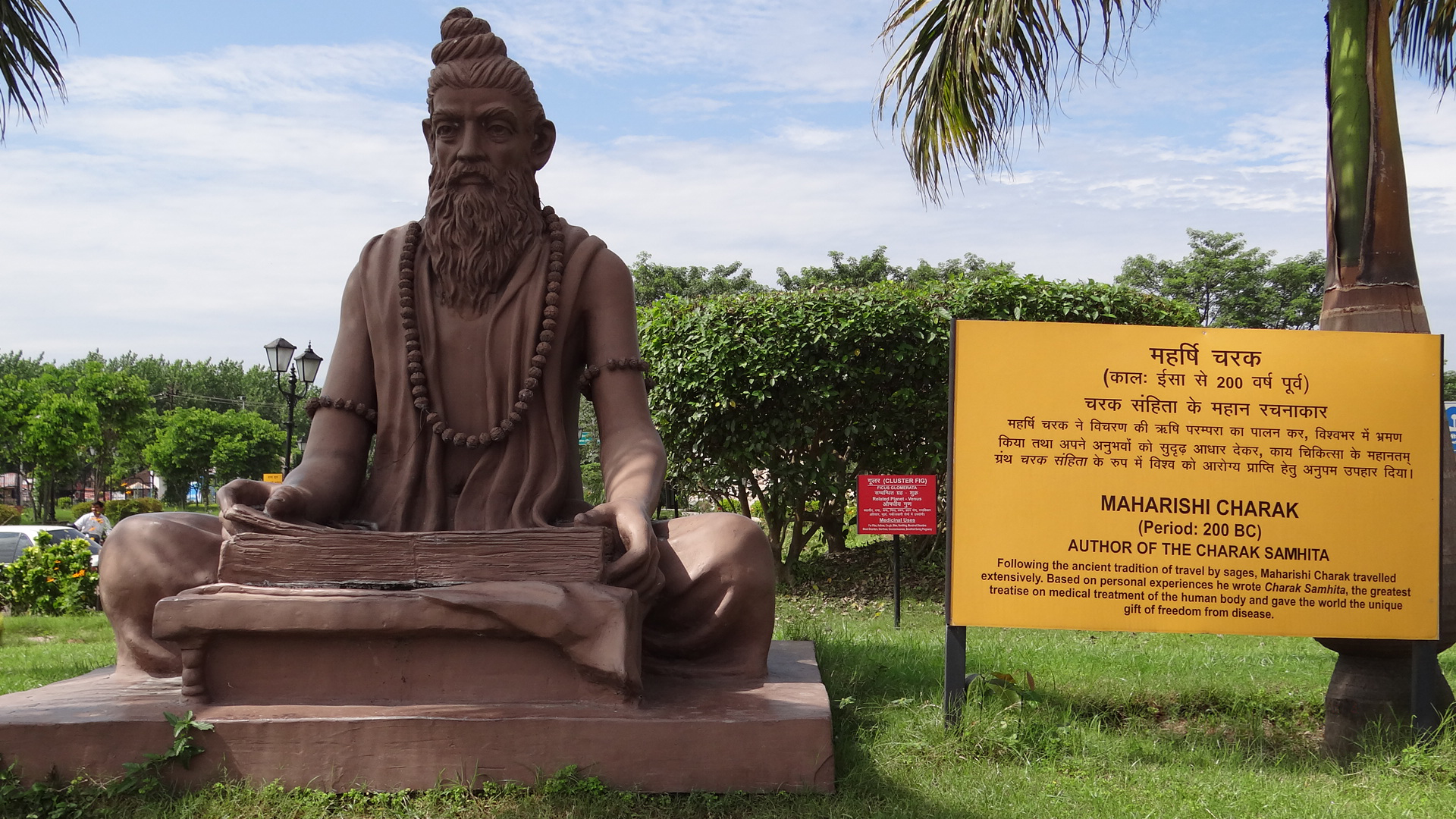Charaka
Charaka (Sanskrit, m., चरक, Caraka, [ ʧʌɽʌkʌ ] ) was an Indian doctor. He is said to have been the author of the Charaka Samhita, the core of the traditional literature of Ayurveda.
Life
The survival data Charakas can not be determined with certainty. As a Chinese translation of the Tripitaka from the year 427 AD, it can be seen a physician Charaka was named the personal physician of King Kanishka, who lived AD in the 1st to 2nd century. But since Charaka could have been a common name for medics, at certain times, it is not clear whether this was also the author of Charaka Charaka Samhita. The Charaka Samhita, along with the Sushruta Samhita, the oldest surviving medical work in India.
According to the Charaka tradition, there should have been six schools of medicine, said to have been founded by students of the physician Punarvasu Atreya. Each of these students ( Agnivesha, Bhela, Jatukarna, Parashara, Harita, and Ksharapani ) is a Samhita have written ( text ), of which the Agnivesha Samhita with 46,000 verses, but which no longer exists, which is said to be best. The Charaka Samhita is to be based on the Agnivesha Samhita. Dridhabala, who lived around 400 AD is said to have some verses of the text ( up to a fifth in the Chikitsasthana ) that were lost over time, re-written.
The works Charakas were translated into Arabic before the 8th century. The name Charakas also occurs in many Latin translations of Arabic medical books.
Ayurveda is divided into Charakas system into eight parts:
Center of medical school was Benares on the Ganges. The anatomy knows 62 members, 360 bones, 15 bodies and numerous blood vessels.









